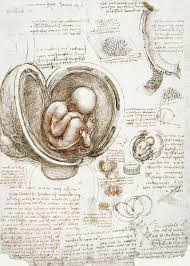Oh really, Samuel. Oh really. Who needs to be liberated? Your libido or your friend? Don't think I'm not question this, such tails of freedom are usually exortations towards dissipation, historically speaking, even the Barbarian Hannibal was really just on vacation trump-stamping through the Alps, and Rome, the great Casino where are spearheads are traded for pieces of silver. Coleridge then, had his own piece of silver, according to the Norton publishers, in the form of his sister-in-law.
His midnight, I'm sure it was lonely--it always seems lonely--unless the quiet is broken. "Gay fancy" he says, "from pole to pole", and what joy-hoping exhuberant wishing he brings us, imparting something of happiness, if not any actual hope, his daydream in the quiet night, lying awake beside his wife, daydreaming of his "friend" achieving her happiness, flying through the air perhaps, "simple spirit".
Have I ever wished a friend well? Have I that impetus to forget myself, maybe I could, and forget to include myself in my own secret prayer words. Tis meet to wish well without including self-possession or possessing the friend in any form; tis rank selfless, but the ingrate would picture himself at the edge, in the actual painting, under the frame edge, haunting, printed like a signature and stealing like a wolf after the "simple soul" of his sheep friend.
Have I imparted enough to darkness to the wishes of friendship and peace?
He wishes, does Coleridge, the stars to hang votive above her dominion; and her soul, something about being simple and pious, and yet have currents and things, jets and eddies and so forth, kind of a froth like the lace of a boddice.
Clearly she is his world; he has assumed he entirely understands her--its a rose tinting in front of his eyes perhaps that obscures things--yet he talks of the simple soul with its own tidal system, its own various constituent elements that produce that boddice froth lace residue of inner beauty. Simplicity, he calls it: why in the modern age we call it mindfulness, we pay gurus to cut through the noise and bring us back to the core business, the winning prior game strategy that carried us thus far, before we became musicians on a second album, or an unwanted continuation of something that once, in its own moment, became titular, above itself, elevated and reminded us of some reflection of divinity: the stars, Coleridge hoped, shined over her house as she slept, which he also hoped, contentedly.
The ingrate says he would give her the world, and the critic agrees, but where the intersection is constructed, the ingrate imparts more specific motives, unlike clouds, his take a different occlusion, a different sort of thumbprint, and he extrapolates from the thumbprint, DNA and other things, such to make a clone of the "simple soul" in verse form, to serve his own, the ingrate says, perverse ends.
"from pole to pole".
He wishes, does Coleridge, to see her eddies. These days, it is so often in the darkness of the corridor where a woman shows her eddies, and for more stanzas, even glorious, mosquito-ridden Panama. And these barriers between people, I guess its an expression in vain, various emotional boundaries cast aside, lagging around the ankles, and the inert, innate riddle of the universe is that they know all along is in vain, innert, and intimacy is river too far from the two, too far in the distance, and they soon hate themselves and what they are, each of them, lashing-out, behaving like the destitute selfhood they realize, and seeing in return the destitute selfhood of the counterpart, the barriers soon pulled back up, from the ankles, the calves, the knees, over the thighmeat and back to posterity and privity; one would hate then, or pity, which was worse, and suddenly everyone is almost a guru, having experience, as it were.
"...friend devoutest of my choice..."

No comments:
Post a Comment
Thank you for your interest in the material. Feel free to post, and speak your mind. "Democracy is the conundrum in which good peoples repair."